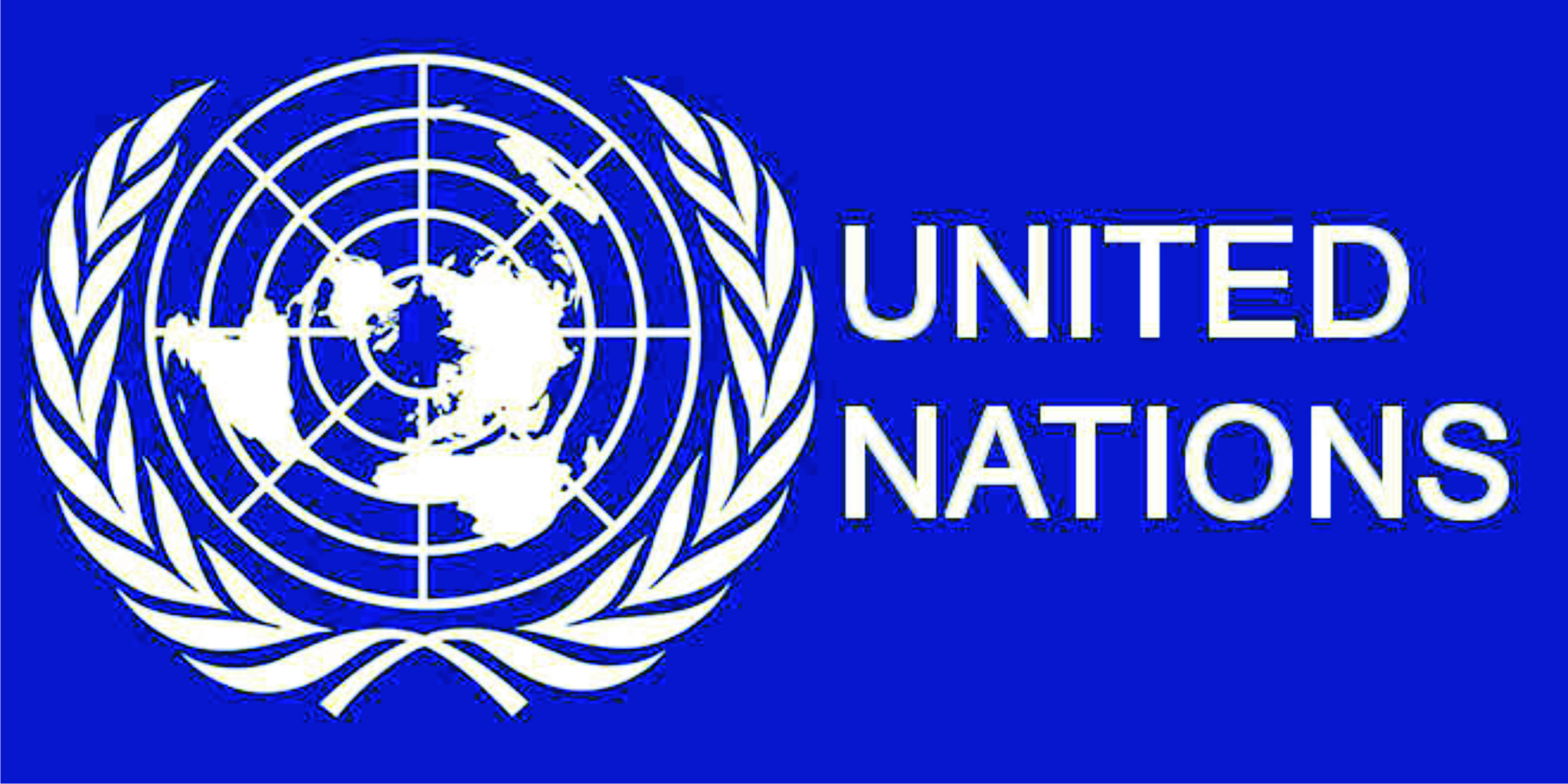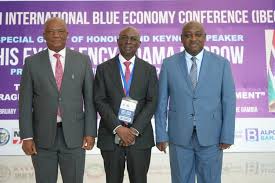Editorial
Towards Sustainable Tourism In Nigeria

In a resolution passed on February 6, 2023, the UN General Assembly declared February 17, to be Global Tour-
ism Resilience Day. The resolution emphasised the importance of encouraging sustainable tourism development. The disruptive and critical effects of the COVID-19 pandemic on the travel and tourism sector informed this decision. Additionally, it drew upon precedent UN resolutions, conferences, and agendas highlighting environmental sustainability and bolstering industry resilience.
Tourism is a vital industry that contributes to sustainable development and the achievement of Sustainable Development Goals (SDGs) in developing countries. It provides income, foreign currency earnings, tax revenue, and employment, and connects people with nature, promoting environmental responsibility and conservation. This cross-cutting industry is particularly beneficial for Africa and middle-income countries.
Sustainable tourism, including ecotourism, promotes economic growth, poverty alleviation, employment, and decent work. It accelerates lasting consumption, promotes sustainable use of oceans and marine resources, and enhances local culture. It improves the quality of life for women, young people, indigenous communities, and rural populations, ultimately contributing to the achievement of the SDGs.
Utilising endurable and resilient tourism as a means to promote continuous and inclusive economic growth, social development, and financial inclusion facilitates the formalisation of the informal sector. It also supports domestic resource mobilisation, environmental protection, the elimination of poverty and hunger, as well as the conservation and tenable utilisation of biodiversity and natural resources. Moreover, sustainable tourism encourages investment and entrepreneurship in the industry.
Tourism plays a vital role in supporting numerous direct and indirect employment opportunities globally, especially benefiting women and young individuals. In certain small island nations and developing economies, tourism makes up more than 20 per cent of the Gross Domestic Product (GDP). The economic impact of tourism, indicated by the tourism direct GDP, was calculated at $1.9trillion in 2021, surpassing the $1.6trillion reported in 2020. However, it still remains lower than the pre-pandemic figure of $3.5trillion.
Tourism is a rapidly growing global economic sector, and destination countries must develop it sustainably to maximise benefits. Nigeria, with its vast geography, cultural diversity, and historical sites, has established tourism ministries to capitalise on its potential. The country’s landscape holds great potential for a sector that can compete with black gold in terms of foreign exchange earnings, making it an attractive destination for tourists.
However, owing to the considerable financial gains obtained from the oil industry, tourism, along with other sectors of our economy such as agriculture and solid minerals, has been severely overlooked. For instance, the annual Osun Osogbo Festival and the Calabar Carnival have been sustained; thanks to the dedicated initiatives of private sector contributors. These events have propelled the city of Calabar into international recognition in recent years.
The previously lively Argungu Fishing Festival, the renowned Argungu Motor Rally, the Yankari Game Reserve, the Jos Wildlife Park, the Olumo Rock, the Asop Falls, and the boat regatta in the coastal regions of Nigeria, particularly Opobo and Andoni, have all seen a decline.
In contrast, the Elmina Slave Castle in Ghana remains a popular destination for tourists seeking to learn about the tragic history of trans-Atlantic slave trade victims. Monuments in Nigeria such as those in Calabar, Lagos, and Badagry are gradually losing their significance in the global tourism landscape.
The Mambilla Plateau, Gashaka-Gumti Game Reserve, Ngel-Nyaki Forest Reserve, and Taraba’s indigenous festivals are potential tourism destinations that could generate revenue comparable to Nigeria’s oil sector earnings. Proper promotion of these attractions could boost the states’ economies and improve their status as one of the poorest in Nigeria. Yobe and Borno states also have the Dagona Birds Sanctuary, attracting diverse bird species from Europe, North America, Australia, and Asia.
Several key landmarks showcase Nigeria’s rich history and potential, such as the 8,000-year-old Dafuna Canoe, the Tulo-Tulowa – dubbed the ‘Desert Land of Hope,’ – as well as the shrinking Lake Chad, which could have thrived as a critical tourist and economic centre. More could have been done by the government to preserve and support these treasures.
The pertinent government bodies must safeguard our biodiversity by penalising those who partake in haphazard bush burning and deforestation. The government should increase funding for infrastructure development and showcase Nigerian tourism attractions globally on international media platforms and embassies. There should be private sector involvement. The authorities should also intensify efforts to tackle security challenges in areas that could negatively impact the sector, such as terrorism, armed banditry, kidnapping, and other allied crimes. Tourists would not visit a country suffering acute security challenges, despite the attractiveness of its tourism destinations.
To address spending deficits and inflation, diversifying the economy is crucial. Tourism, with its substantial revenue sources, can fund government policies and programmes. States like Rivers can use tourism to stimulate economic growth, create new jobs, and foster community connections. This initiative will boost revenue, fuel developmental efforts, strengthen social bonds, and promote peace and cultural unity.
Exploring new investment opportunities in tourism in areas like Port Harcourt, Bonny, Andoni, Opobo, Kono, Okomoko, Oyigbo, Umuebule, Abonnema, Degema, Buguma, Mbiama, Ndoni, Isaka, Okrika, Ogu, and others, will not only attract tourists but also drive development to these regions. With their beautiful beaches and other tourist attractions, these areas have the potential to become popular destinations, creating jobs and boosting the local economy.
The Songhai farm has the potential to be revived, offering opportunities for tourists to appreciate the vast resources available in the state, just as it did in the past. Similarly, the waterfronts in Port Harcourt can be transformed into beautiful beaches for tourists to enjoy. With these in place, the social life in the city can be restored with exponential investments in tourism. Not only will tourists have a new attraction to visit, but residents will also benefit from improved living conditions.
This is why we urge increased government investments in tourism through a pragmatic diversification policy that is inclusive and innovative. We commend a vigorous private-public partnership that taps from the abundant tourism potential in the state to create an enabling environment for enduring peace and sustainsble development. We insist on a deliberate government strategy to boost investments in tourism and broaden citizen interactions to enhance healthy living and wellness in the state.
Editorial
Democracy Day: So Far…

Nigeria’s return to democratic rule in 1999 marked a watershed moment in the nation’s political history. After enduring nearly 16 years of successive military dictatorships, Nigerians embraced a new era of civil governance with the inauguration of President Olusegun Obasanjo on May 29, 1999. Since then, the country has sustained a democratic system for 26 years. But, this democratic journey has been a complex mix of progress and persistent challenges.
The formal recognition of June 12 as Democracy Day in 2018 by former President Muhammadu Buhari acknowledged a long-standing injustice. The annulment of the 1993 presidential election, Nigeria’s freest, betrayed the democratic aspirations of millions. That it took decades to honour this date reflects the nation’s complex relationship with its democratic memory.
One of the most momentous successes of Nigeria’s democracy has been the uninterrupted civilian rule over the last two and a half decades. The country has witnessed seven general elections, with power transferring peacefully among different political parties. This is particularly notable considering that prior to 1999, no civilian government had completed a full term without military intervention. The peaceful transitions in 2007, 2015, and 2023 are testaments to Nigeria’s evolving democratic maturity.
Electoral participation, while uneven, has also reflected a level of democratic engagement. In 2003, voter turnout stood at about 69 per cent, but this figure dropped to approximately 34.75 per cent in 2023, according to the Independent National Electoral Commission (INEC). Although the declining turnout raises concerns, it also highlights the increasing expectations of the electorate, who demand credible and transparent elections.
Another area of progress is the growth of a vibrant and free press. Nigerian media has played a crucial role in holding governments accountable and fostering public discourse. Investigative journalism and civil society activism have exposed corruption and human rights abuses. The rise of social media has further expanded the democratic space, enabling young Nigerians to mobilise and advocate for change, as evidenced by the 2020 #EndSARS protests.
Judicial independence has seen mixed results. On one hand, the judiciary has occasionally demonstrated resilience, such as in landmark rulings that overturned fraudulent elections or curtailed executive excesses. On the other hand, allegations of political interference and corruption within the judiciary persist, undermining public confidence in the legal system’s impartiality.
Nigeria’s democracy has also facilitated the decentralisation of power through the federal system. State governments now wield some autonomy, allowing for experimentation in governance and service delivery. While this has led to innovative policies in some states, it has also entrenched patronage networks and uneven development across the federation.
Despite these successes, Nigeria’s democratic journey faces formidable problems. Electoral integrity remains a critical concern. Reports from election observers, including those from the European Union and ECOWAS, frequently highlight issues such as vote-buying, ballot box snatching, and violence. The introduction of the Bimodal Voter Accreditation System (BVAS) and electronic transmission of results in 2023 elections showed promise, but technical glitches and alleged manipulations dampened public trust.
Corruption continues to be a pervasive issue. Nigeria ranks 145th out of 180 countries on Transparency International’s 2023 Corruption Perceptions Index, with a score of 25/100. Democratic institutions meant to check graft—such as anti-corruption agencies and the legislature—often struggle due to political interference and weak enforcement mechanisms.
Security challenges have also strained Nigeria’s democracy. Insurgency in the North East, banditry in the North West, separatist agitations in the South East, and herder-farmer conflicts across the Middle Belt have collectively resulted in thousands of deaths and displacements. According to the Global Terrorism Index 2024, Nigeria ranks as the eighth most impacted country by terrorism. The government’s difficulty in ensuring safety erodes public confidence in the state’s capacity and legitimacy.
The economy poses another critical remonstrance. Nigeria’s Gross Domestic Product (GDP) per capita stands at approximately $2,400 as of 2024, with over 40 per cent of the population living below the national poverty line. High unemployment and inflation have fueled discontent and disillusionment with democratic governance, especially among youth. Without addressing economic grievances, the democratic dividend will remain elusive for many Nigerians.
Ethnic and religious divisions further complicate Nigeria’s democratic consolidation. Politicians often exploit identity politics for electoral gains, exacerbating social tensions. Although federal character principles aim to promote inclusiveness, they have also sometimes fostered a quota mentality rather than merit-based appointments.
Gender representation remains inadequate in Nigeria’s democratic institutions. Women occupy less than 10 per cent of seats in the National Assembly, one of the lowest rates globally. Efforts to pass gender parity bills have faced stiff resistance, highlighting deep-seated cultural and institutional barriers to female political participation.
Civil liberties, while constitutionally guaranteed, are under threat. Crackdowns on protesters, restrictions on press freedom, and surveillance of activists reveal an authoritarian streak within the democratic framework. The controversial Twitter ban in 2021 exemplified the country’s willingness to curb digital freedoms, prompting domestic and international criticism.
The political crisis in Rivers State embodies broader democratic struggles. Attempts to control the state through undemocratic means expose weaknesses in federal institutions and the rule of law. Immediate restoration of democratic governance in Rivers State is vital to preserving Nigeria’s democratic integrity and institutional credibility.
Local governments remain under the control of state governors, depriving citizens of grassroots democracy. Last year’s Supreme Court judgment on local government autonomy is promising, but state-level resistance threatens its implementation. Genuine autonomy would bring governance closer to the people and foster democratic innovation.
As we mark Democracy Day, we must honour the sacrifices of Chief M.K.O. Abiola, Kudirat Abiola, Femi Falana, Chief Gani Fawehinmi, Pa Alfred Rewane, President Bola Tinubu, and countless others, who fought for Nigeria’s freedom. As democracy in Nigeria continues to evolve after 26 years, this day should inspire action toward its renewal. With despotism and state failure as real threats, both citizens and leaders must take responsibility—citizens by demanding more, and leaders by delivering. Excuses are no longer acceptable.
Editorial
Nigeria’s Plastic Pollution Emergency

Yesterday, Nigeria joined the rest of the world to mark 2025 World Environment Day. The occasion serves as a stark reminder that our battle against plastic pollution requires more than symbolic gestures—it demands sustained, coordinated action from all levels of government. As communities worldwide grapple with mounting environmental challenges, Nigeria’s approach to plastic waste management stands at a critical juncture.
Dr. Ibinabo Ogolo, a Research Fellow at the Institute of Geosciences and Environmental Management at Rivers State University, has issued a timely call for comprehensive enlightenment campaigns targeting indiscriminate plastic waste disposal. Her message resonates with the urgency that characterises this year’s global theme: “Beat Plastic Pollution.”
The core challenge lies not in policy formulation but in implementation. Years of environmental initiatives have fallen short primarily due to inadequate public education and awareness campaigns. Citizens cannot be expected to adopt responsible waste disposal practices without understanding the gravity of their actions or knowing the proper alternatives.
Government platforms at federal, state, and local levels possess the infrastructure necessary to reach every corner of our society. Television, radio, social media, community meetings, and educational institutions provide ready channels for sustained messaging. The tools exist; what remains is the political will to deploy them effectively and consistently.
This year’s World Environment Day theme underscores the global recognition of plastic pollution’s devastating impact on ecosystems, wildlife, and human health. The message is clear: plastic waste represents one of the most pressing environmental challenges of our time, requiring immediate and sustained attention from policymakers and citizens alike.
The health implications of plastic pollution extend far beyond environmental aesthetics. Industrial and medical plastic wastes often contain toxic chemicals with carcinogenic properties, posing direct threats to human health. These materials don’t simply disappear when improperly disposed of-they infiltrate our environment, contaminating soil, water sources, and food chains.
Plastic additives released into the environment create a cascade of contamination that affects entire ecosystems. Wildlife suffers through ingestion, entanglement, and habitat destruction, while humans face exposure through contaminated water, food, and air. The interconnected nature of these impacts demands a comprehensive response that addresses both immediate disposal practices and long-term prevention strategies.
The link between plastic pollution and serious health conditions, including breast, ovarian, liver, and lung cancers, as well as various hormonal disorders, underscores the urgency of public education campaigns. Citizens have the right to understand how their daily choices affect not only environmental health but their own well-being and that of their families.
Despite scientific awareness of ocean plastic pollution dating back approximately 50 years, Nigeria’s rivers, creeks, and waterways continue to suffer from plastic waste invasion. This represents a failure of sustained commitment rather than a lack of knowledge about the problem’s existence and solutions.
The ritualistic approach to World Environment Day celebrations must end. Annual speeches and symbolic cleanups, while valuable, cannot substitute for year-round, systematic efforts to change behaviour and protect our environment. Governments must develop comprehensive frameworks that extend beyond June 5th commemorations.
Sustained enlightenment campaigns require dedicated funding, clear messaging, measurable objectives, and regular evaluation. Success depends on consistency, creativity, and community engagement that transforms environmental protection from a government mandate into a shared cultural value.
The path forward demands that all stakeholders-government officials, community leaders, educators, and citizens-recognize their roles in combating plastic pollution. Only through sustained, coordinated efforts can we hope to achieve the behavioural changes necessary to protect our environment and secure a healthier future for generations to come.
Editorial
2025 UTME: Lessons, Concerns

The recent uproar surrounding the poor performance of students in the 2025 Unified Tertiary Matriculation Examination (UTME), alongside growing distrust in the Joint Admissions and Matriculation Board (JAMB), has sparked nationwide concern and regional tensions.
JAMB’s published results reveal a troubling trend: over 75 per cent of candidates scored below 200 out of 400. This marks a continuation of a steady decline in performance since 2020. The Minister of Education, Prof. Tunji Alausa, attributed this decline largely to the shift toward the Computer-Based Test (CBT) format introduced by JAMB.
Yet the crisis extends beyond widespread low scores. A total of 379,997 candidates-primarily from South-East Nigeria and Lagos State-were reportedly affected by technical glitches and human errors. These issues rendered their results invalid. In a rare public admission, JAMB Registrar, Professor Ishaq Oloyede, broke down in tears at a press conference, accepted responsibility, and announced a makeup UTME scheduled from Friday, May 16 to Monday, May 19, 2025.
However, the decision to reschedule the exam on short notice has drawn criticism. Many argue that the affected candidates, already emotionally distressed, were not given sufficient time to prepare. The Board’s plan to inform them via bulk SMS-a method known for its 50-60 per cent delivery rate-was also seen as inadequate, potentially excluding half of those impacted. Critics argue, JAMB should have either extended the resit period or leveraged digital answer scripts for regrading-unless, of course, such retrieval technology is unavailable.
Multiple factors likely contribute to the consistent underperformance of UTME candidates, yet the nation has seemingly accepted this dismal trend as standard. Each year, JAMB meets with university vice-chancellors, and low results are normalised. Consequently, universities scramble to admit the 25 per cent who scored above 200, often lowering their standards to fill quotas. This is especially evident in the profit-driven expansion of private universities.
The 2025 UTME debacle has exposed long-standing systemic flaws. Embracing digital-only exams demands greater readiness-both from service providers and from candidates. Reports from CBT centres include system malfunctions, frozen screens, login errors, and lost answers. Some candidates were unable to navigate subjects or submit their tests. These failures were beyond their control.
Whether due to technical incompetence or deliberate sabotage, the damage is clear. Some speculate that JAMB or its leadership-particularly Prof. Oloyede-may have been targeted. Over the past nine years, Oloyede has returned billions of naira in surpluses to the national treasury, earning both praise and scrutiny. While JAMB is not a revenue-generating agency, this unusual financial transparency has boosted its public image.
Despite this crisis, Prof. Oloyede showed commendable leadership, accepting responsibility, and taking immediate corrective action. The priority now must be to implement lasting solutions that prevent future failures. Leadership must be both principled and responsive to the public outcry.
Beyond the technical breakdowns and poor performance statistics, the UTME crisis had a tragic human cost, with at least one student reportedly taking their own life. Widespread irregularities have undermined trust in Nigeria’s educational meritocracy, reducing years of student effort to nothing.
The use of flawed software systems lacking safeguards has had catastrophic consequences. Essential reforms must include external audits, system redundancies, and real-time monitoring. JAMB’s initial poor communication only deepened public anxiety, underlining the need for greater transparency and independent oversight.
What is required now is a complete overhaul of JAMB’s technical infrastructure and a new communication strategy grounded in empathy and student welfare. Broader systemic reforms must follow, including more inclusive admission criteria and better support structures for students.
This crisis presents an opportunity-a solemn one-for sweeping reforms that centre students’ needs. Transformative action must be taken, not just in response to this scandal, but in honour of the life lost and to restore public trust.
Finally, an urgent and impartial investigation must uncover the true causes of these failures. Those found culpable must be held accountable. If we move forward without consequences, both JAMB’s reputation and that of its leadership may suffer irreparable damage.
-
Rivers5 days ago
NDDC Commends Staff’s Role In Advancing Dev
-

 Sports4 days ago
Sports4 days agoUnity Cup Games Performance Excites NFF President
-
Business5 days ago
Nwoko Advocates AI-Powered Surveillance Against Crude Oil Theft
-
Nation5 days ago
Deputy Commandant Hails Tinubu For Signing NFSS Bill Into Law
-
Opinion5 days ago
Flood Disaster In Nigeria: Predictable Tragedy
-

 News4 days ago
News4 days agoNigeria seeks collaboration for ocean protection
-
Rivers5 days ago
TADC, RSU Collaborate On Campus-Based Agric Initiative
-

 Sports4 days ago
Sports4 days agoUS Based Athletes To Lead Nigeria In Fencing Championships

